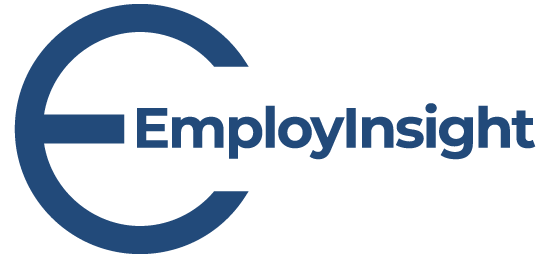Women’s Month in South Africa serves as a crucial reminder of women’s significant contributions and their ongoing role in shaping society and the economy. EmployInsight highlights this month as an opportunity to reflect on leadership, particularly leadership grounded in integrity, which is essential for women in business aiming to build resilient, ethical organisations.
Authentic leadership for women means acting with honesty, strong moral principles, and a consistent commitment to what is right. For women leaders, integrity is even more profound as they navigate complex professional and societal expectations. Leading with integrity allows them to build trust, inspire teams, and foster inclusive work environments. By demonstrating that success encompasses principles, not just profits, they cultivate ethical workplaces where fairness and respect are paramount, consistently upholding their values in all professional interactions.

Integrity is the bedrock of business resilience. In today’s dynamic business world, resilient companies adapt, learn, and grow stronger from challenges. Businesses with strong ethical foundations are better equipped to withstand crises, maintain customer loyalty, and attract top talent. For women business leaders, embedding integrity into their operations leads to sustainable growth and a positive reputation. It mitigates risks associated with unethical practices and fosters a culture of accountability. When leaders act with integrity, employees are more engaged, motivated, and committed, creating a virtuous cycle of trust and performance.
Empowering women professionals involves creating an environment where they feel valued, heard, and supported to lead authentically and ethically. Fostering ethical practices specifically empowers women through:
- Fairness and Transparency: Ethical workplaces prioritise fair hiring, transparent promotion, and equitable pay, addressing historical imbalances and ensuring equal opportunities for women based on merit.
- Safe and Respectful Environments: Integrity demands zero tolerance for harassment and discrimination, enabling women to contribute their full potential and embrace leadership roles.
- Mentorship and Sponsorship: Ethical leadership includes a commitment to developing others. Women leaders with integrity are more likely to mentor and sponsor other women, guiding and advocating for their growth. EmployInsight emphasises the critical role of ethical leadership in thriving workplaces, offering HR consulting and workplace policy development services to help businesses, especially those led by women, integrate integrity into their operational DNA.
Women’s impact on upholding integrity is significant. Research and real-world observations suggest women often play a distinctive role in promoting ethics, especially where corruption is prevalent.
Examples:
- Politics: Ellen Johnson Sirleaf, former President of Liberia, was recognised for fighting corruption and promoting good governance, receiving the Nobel Peace Prize. A World Bank study (Dollar, Fisman, and Gatti, 1999) indicated that countries with more women in parliament tend to have lower corruption levels.
- Business: Sharon White, former CEO of Ofcom (UK Regulator), is known for ethical leadership and transparency, advocating for diversity and consumer fairness. McKinsey & Company’s “Women Matter” reports consistently show that women in executive roles focus more on ethics, people development, and inclusive leadership, leading to stronger corporate social responsibility reputations.
- Public Service & Anti-Corruption: Thuli Madonsela, former Public Protector in South Africa, fearlessly uncovered unethical government spending, earning widespread respect for her integrity. A Transparency International Report (2014) highlighted women’s leadership in anti-corruption initiatives in civil society.
These examples suggest women often promote integrity due to factors like a lower propensity for corruption, a higher emphasis on ethical decision-making, and resilience. This doesn’t imply women are inherently “more ethical,” but rather that power structures and societal roles can influence behaviour, often leading women to face higher scrutiny, which encourages ethical conduct.
Beyond those in the spotlight, female whistleblowers are unsung heroes who risk everything to uphold ethical standards. Their bravery serves as a beacon of integrity against immense pressure. Cynthia Stimpel, a former South African Airways (SAA) treasurer, blew the whistle on a corrupt deal despite intimidation, highlighting the vital role of integrity in safeguarding public resources. Similarly, Sarah Burger, an imagined woman in a male-dominated industry, uncovers financial irregularities and discrimination, choosing conscience over complicity. Her journey, fraught with fear, ultimately leads to systemic change.
These stories underscore:
- The immense personal cost of integrity: Whistleblowers often face severe professional and personal repercussions.
- The transformative power of one voice: A single act of courage can expose widespread corruption and drive significant change.
The critical need for protection: Their experiences highlight the importance of robust legal frameworks and support systems for whistleblowers. These examples demonstrate that leading with integrity isn’t always about grand gestures but often about the quiet, relentless determination to do what is right, even in peril. Their integrity is a testament to the resilience and moral fortitude of South African women.
Navigating Workplace Ethics South Africa: Best Practices

Best Practice | Description |
Lead by Example | Consistently demonstrate ethical behaviour in all decisions and interactions, setting the tone for the organisation. |
Establish Clear Policies | Develop and communicate clear codes of conduct, ethics policies, and anti-corruption guidelines, ensuring employees understand them and their consequences. |
Encourage Open Communication | Create a culture where employees feel safe to raise ethical concerns without fear of retaliation, implementing anonymous reporting mechanisms if needed. |
Provide Regular Ethics Training | Conduct regular training on ethical decision-making, conflict of interest, and other relevant topics to help employees address ethical dilemmas. |
Promote Diversity and Inclusion | A diverse and inclusive workforce brings broader perspectives, aiding in identifying and resolving ethical issues and contributing to gender equality. |
Accountability and Consequences | Ensure ethical breaches are addressed promptly and fairly, with clear consequences regardless of the individual’s position. |
Implementing these practices enables women leaders to cultivate a pervasive culture of integrity, ensuring a successful, ethical, and equitable workplace.
Integrity is crucial for advancing gender equity, fostering ethical workplaces, and promoting sustainable development in the female world of work in South Africa. It empowers women to lead with purpose and gain credibility, especially in male-dominated industries, influencing organisational cultures towards transparency and fairness. Women in the workforce often face discrimination; integrity allows them to speak out and demand accountability, resisting bribery and reporting misconduct in vulnerable sectors. Integrity fosters respect, ethical collaboration, and psychological safety in diverse teams, helping establish policies that promote dignity and protect rights. Female entrepreneurs and public servants with strong ethical foundations contribute to rebuilding trust in institutions and markets, which is vital in South Africa. Women with integrity are more likely to prioritise ethical investment, fair hiring, and responsible sourcing, driving sustainable economic inclusion. Despite systemic barriers, enablers like ethics training, leadership development, support networks, and protective legislation are crucial for fostering a just and inclusive economy.

This Women’s Month, beyond celebrating contributions, there’s a commitment to building a future where integrity is fundamental to every South African workplace. Authentic leadership for women shapes a better, more just, and equitable society. EmployInsight supports businesses committed to these principles. When women lead with integrity, they elevate their organisations and inspire a new generation of ethical leaders. EmployInsight invites women in business to connect for support in fortifying ethical frameworks, enhancing leadership, and building resilient, values-driven organisations. Contact EmployInsight to learn more about their services.

